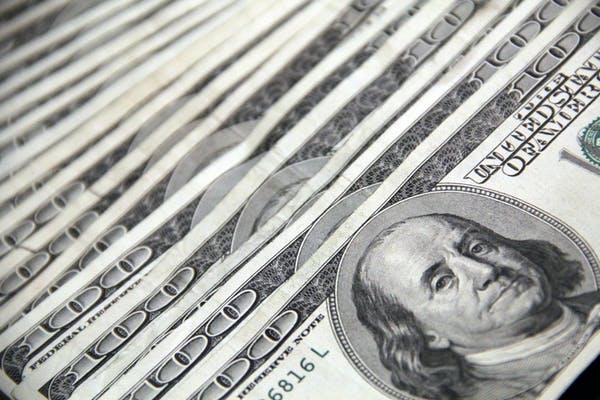Finance
How To Take Advantage of The Favorable Aspects of Inflation

Let’s be precise: Inflationary trends within a nation’s borders can be one of the most difficult times for its citizens, as well as one of the primary reasons why certain economies fail and, in some cases, why governments default on sovereign debt and other nations are plunged into instability and struggle for years to recover. On the strength of this single most popular “buzzword” in economics, a multitude of politicians have won and lost elections, or even been removed from government, based on their pledges to battle soaring inflationary tendencies inside their respective nations. In 1974, President Gerald Ford said that inflation was the biggest problem in the United States.
Inflation and its associated tendencies are not entirely negative, despite their evident drawbacks, which include a rise in the cost of goods and services and a decrease in the purchasing power of bank deposits. In reality, economists think that a degree of inflation that is rigorously and properly controlled is beneficial for any economy, and thus for you and your company in the short and long term. So, even though the word “inflation” and what it means may sound bad, it’s not as bad as you might think. If you know how to find the silver lining in a black inflationary cloud, inflation could make you rich or even increase the value of your business.

In this post, we’ll look at some of the ways that inflation can work to your advantage and how to take advantage of them.
Now, let’s begin with a fundamental knowledge of inflation in layman’s terms. Essentially, inflation is the rise in the price of goods and services that occurs when more money chases fewer commodities and services over a given time. Among the primary causes of inflation are:
Yes, believe it or not, you and I are the primary sources of inflationary pressure. A growing economy leads to rising employment rates and salary rises, which is a desirable thing in and of itself since more people have jobs and more disposable income, which they spend on both essentials and pleasures. Because of this higher demand, suppliers can raise prices to cover higher operating costs. This creates more jobs and puts more money into circulation.
If this alone generates a stable pace of inflation, then let’s inflate the economy to no avail! Unfortunately, this is the sole beneficial effect of an inflationary tendency, and we will see shortly why. Thereafter,
This refers to the physical printing of more currency than an economy needs to function. The same idea of supply and demand applies here. With more money in circulation, consumers have greater purchasing power. They go on a spending frenzy, causing prices to increase while simultaneously weakening the nation’s currency to the point that it has little worth. Consequently, you may comprehend why the Zimbabwean currency is now essentially worthless. The nation printed so much of it for little to no purpose that its value as the national medium of trade vanished. Therefore, it is important to remember that money is worth whatever we deem valuable enough to exchange it for. Because of this, printing more money than a country needs is seen as one of the most dangerous ways to cause inflation or hyperinflation, which is why countries rarely print money and prefer to recycle and fix up old bills instead.

Government policies and regulations often take the form of increased tariffs and taxes. The more the government taxes manufacturers or importers for producing or importing goods or services, the more these costs are passed on to consumers in the form of higher prices. This may not be entirely negative, as a government may utilize higher taxes and tariffs to prevent the excessive importation of foreign products in favor of domestic ones; an example of this is the tariff on imported rice, which encourages domestic production and demand. The only obstacle is when local production and quality do not meet the anticipated local demand. This thus increases the demand for the ever-present imported commodities, hence perpetuating inflation.
In many respects, government policies and regulations may be seen as a double-edged sword; however, we will address this more in another post.
Unfortunate as it may be, it is now common knowledge that many governments borrow to service their national budget and purchase items their country needs or, in some instances, does not need to operate. When national debt reaches a threshold that the government can no longer pay efficiently from its own resources, it has two alternatives. The first is to increase tariffs inside its borders in order to satisfy its debt commitments. As previously said, this increase in taxes is eventually passed on to you and I, who must pay more, causing inflation.
Obviously, the government’s alternative choice is to create additional money. As previously discussed, this may be very detrimental to any economy, which explains why governments continue to raise taxes, especially if they spend more than they earn, and in some instances with nothing to show for it. Printing more notes than are needed to replace those in circulation reduces the value of any currency and, in many situations, causes hyperinflation. However, more on that in a later post.
Thereafter,
Devaluation of a currency is the artificial downward adjustment of a country’s currency exchange rate, resulting in a reduced value. This makes its exports cheaper, which encourages other countries to buy more of them. However, this also makes imported goods more expensive, which encourages people in the devaluing country to buy local goods instead of imports.
Even though it led to a rise in inflation at home, devaluation has helped some countries sell more of their overseas goods on the global market. This has created jobs and boosted their economies by leaps and bounds.
Unfortunately, the same cannot be true about Nigeria, and there are a number of reasons for this. However, it is worthy of its own post, so we will go on.

Weak Exchange Rate: The more a country’s currency is seen as important and necessary to influence commerce or business, especially outside its boundaries, the greater its worth. As a result, the more money inhabitants of a country have to and are willing to spend on foreign products and services, the more costly it gets; this, in turn, leads to inflation, especially when a nation is more import-dependent than export-dependent. Trade requires less of the native currency and more of the foreign currency.
War: Indeed, nothing fosters or exacerbates inflation more than war. The more a nation or territory is ravaged by violence, the less people and companies will choose to live or work there, resulting in exorbitant price increases for whatever products and services are available. This is made worse when people can’t meet their basic needs, as in the Ukraine conflict.
Crime: Similar to war, companies and individuals prefer to avoid and do considerably less commerce in locations and nations where crime rates seem unconstrained. As a result of the inherent hazards to their lives and business assets, firms in high-risk regions charge much higher prices for their products and services than they would in regions deemed to be less dangerous.
Inflation: The Advantages…
Although strong inflation is detrimental to an economy, deflation, or lowering prices, is also undesirable. When prices are declining, buyers prefer to postpone buying decisions as long as possible in anticipation of further price reductions. This reduces economic activity, revenue created by producers of products and services, and economic growth for any economy. Japan is a nation that has had a lengthy period of almost no economic development, mostly due to deflation. This implies that inflation supports economic development by encouraging immediate spending rather than delaying purchases indefinitely into the future.
For you and your business, inflation means that as long as you offer needed goods and services, you can continue to produce knowing that people will purchase from you sooner rather than later, and you can sell your goods at a higher price to cover your production costs while also being willing to take certain business risks to increase output. This then results in…
Profits are increased by selling at a greater price.
Increased Production as a result of receiving more revenue to produce more products and services and even expand operations. Consequently…
Increased output necessitates a rise in demand for the different inputs of production, including labor with higher work experience, resulting in an increase in employment and income.

Therefore…
Better Investment Returns Because of inflation, investors and company owners gain more incentives to engage in productive activities, and increasing expenses are passed on to business clients. Consequently, they obtain more profits. This in turn implies…
As a result of a rise in value and dividend payments, shareholders get a greater income as a company’s earnings increase.
Moreover, inflation benefits More money is borrowed than lent. Inflation reduces the buying power of currency. Therefore, if the borrower is paying an interest rate that is less than the inflation rate, he is gaining. This is because the real worth of the money returned by the borrower is less than the amount borrowed. During an inflationary spike, you actually pay less to your lender than you realize.
So long as you pay interest on a loan between 0 and 5% (Zero to Five Percent) over the current inflation rate, you are still benefiting more from the loan than the lender who is getting it, according to some economic experts. Do you now comprehend how the affluent get wealthier? They constantly arrange loans with cheap rates of interest.
How to take advantage of inflation…
As an employee, you must: As a result, one of the most crucial things to keep in mind is that as long as your income is steady, inflation will ultimately catch up to it and diminish its buying power. Eventually, you will be able to purchase less with the same income and will have to pay more for the same essentials and indulgences. Therefore, as long as you view yourself as an asset to your employer, it is never a bad idea to request a salary review if you feel that inflation is eating too deeply into your paycheck, unless you already work for a company that has periodic wage reviews as part of its policy or offers generous bonuses at a particular time of the year to compensate for potential loss in your wage purchasing power. Otherwise, it may be time to update your resume…
Prepare less, invest more: As youngsters, we were encouraged to save for a rainy day, and a savings account was one option. But nothing erodes the purchasing power of your money in the bank more than inflation. Not even ordinary bank fees diminish your purchasing power as much as inflation. Attempting to equal or outpace inflation with your money outside of a standard savings account is a terrific method to guarantee that what little you possess still delivers a financial punch whenever you make a purchase.
Many individuals find it difficult to practice fiscal responsibility. However, you must constantly keep in mind that, owing to inflation, your income is much less valuable than it was not just a year ago, but even a month ago. Particularly if you are a single-income earner, you must thus analyze every purchasing choice and strive to maintain as much liquid assets as possible, mostly to invest.
Attempt to increase your earning potential; this relates to investment. Especially if you are a worker. It has been shown again and again that less money and more bills have a negative impact on mental and physical health, making it imperative that your salary remains above inflationary trends if you want a secure and pleasant work life. Therefore, if you are more of a merchant than an investor, you may consult my prior post titled 16 Recession-Proof Businesses












